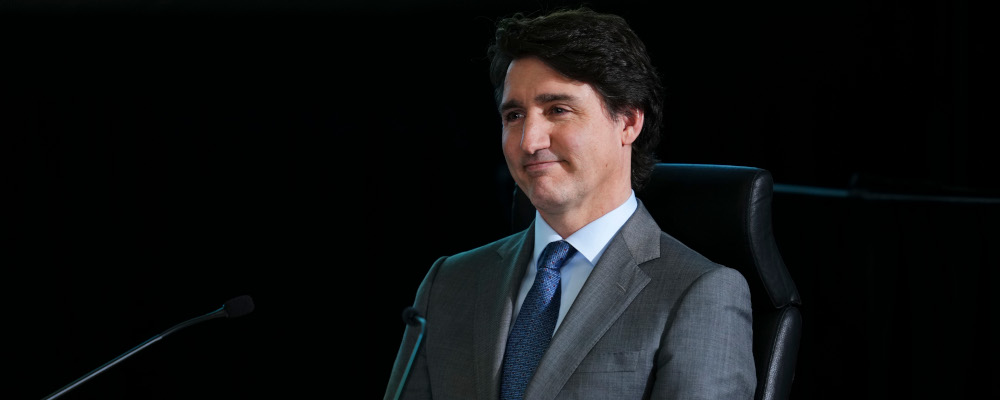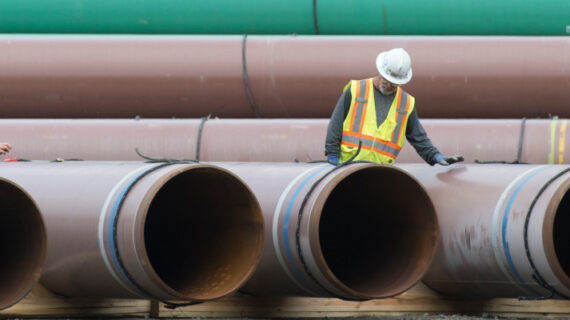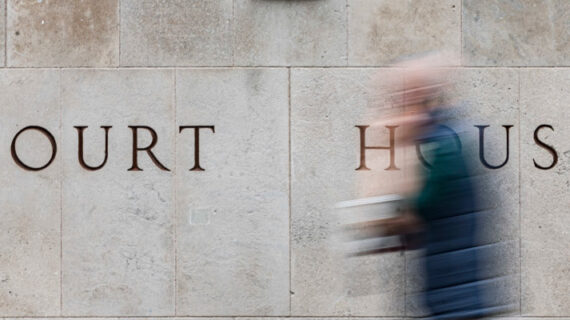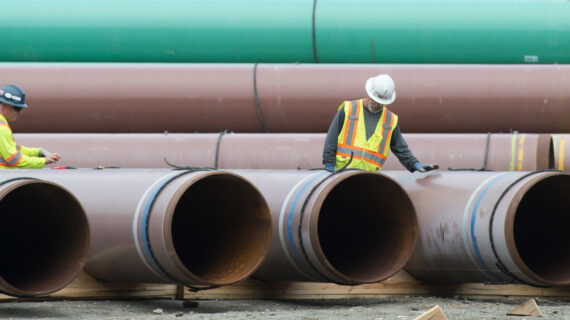Earlier this week in Ottawa, I sat in the beautiful Bambrick Room of the Library and Archives Canada building and witnessed the Prime Minister of Canada along with his key ministers give sworn evidence to the Public Inquiry into Foreign Interference in Federal Electoral Processes and Democratic Institutions (PIFI).
Under the fluorescent lighting and surrounded by oil paintings of sections of Canada Pacific trains in various bits of the Canadian landscape, Trudeau and company put on an hours-long masterclass in delivering a droning, legalistic message whose technical accuracy aimed to divert attention from the latest and most important controversies damaging their aging Liberal government. The disciplined messaging set up all week was capped off by Prime Minister Trudeau’s uninspiring testimony.
For more than a year, Trudeau and his government have been unwilling to provide any real insight into what information CSIS or our other intelligence services had shared with them about allegations of hostile ideological opponent states’ secretly meddling in our politics. While the public had been alarmed and outraged by extraordinary media reports of leaks by ex-CSIS operatives claiming the People’s Republic of China had lent support—in the form of delivering nominations voters and untraceable funds via proxies—to candidates it considered strategically better suited to its cause, Trudeau was essentially mum on what, if anything, his government had been told about it or had done about it.

Other than “no comment” on questions of what he had been told and when, all Trudeau would really say up until his testimony was that there was not a shred of evidence that the overall electoral outcome had been impacted, or the democratic will of the people had been consequentially undermined. It is important to stress that, thankfully, he is right about this–though that comes as cold comfort to the handful of candidates whose ridings were potentially affected by the interference.
But then, on the stand and under oath, Trudeau appeared to open up. The prime minister was clear that he, his advisory team, and his ministers had indeed received many briefings from CSIS and other bodies about foreign interference—in particular, focusing upon the efforts of the People’s Republic of China to skew nomination contests where election candidates are chosen by local members. Strangely and surprisingly, the prime minister explained that he in fact does not tend to read said intelligence briefings, but instead relies on advisors to brief him orally.
These briefings go back to the fall of 2019, when CSIS told Jeremy Broadhurst, Trudeau’s nominations and elections point-man, that it had real concerns about “irregularities” that appeared to be coordinated by the Chinese consulate office in Toronto in the nomination of Han Dong, who went on to be elected as the Liberal MP for Don Valley North.
As a frequent public critic of the prime minister’s politics, I should not be accused of effusive praise for pointing out that Trudeau is in his element on the stand at public inquiries, to the point that he seems a completely different politician from his standard public persona. In public, he is an often contrived, casually dressed, or elaborately costumed man with an interrupted delivery and a tendency for unscripted flubs.
On the stand, he was a different animal altogether. One who is in impeccable business dress, sitting in a still and naturally commanding fashion and moving quickly and without pause across wide-ranging questions, all while being calmly dialled into detail. It was this Trudeau who walked Justice Hogue and legal counsel through meetings he had with CSIS, his ministers, and his advisors, as well as the decision-making process they deployed.
Most notable is an October 2019 meeting with Broadhurst in an Ottawa airport holding room before heading out on another leg of election campaigning. Here Trudeau said he asked his advisor about the quality of the intelligence he had been given on the Dong nomination. Broadhurst told him that CSIS had some concerns Beijing was leaning on Chinese nationals in Canada with student visas to board busses and vote for Dong. Trudeau wanted to know if Dong knew about it and was a witting beneficiary. Broadhurst said there was no intelligence to suggest that. Trudeau then asked his campaign director if it was a close enough nomination that the outcome could have been determined by these potentially nefarious foreign nationals. Broadhurst assured him that the margin of victory for Dong was wide enough that a couple of dozen improper votes would not have made a difference.
Case closed I guess?
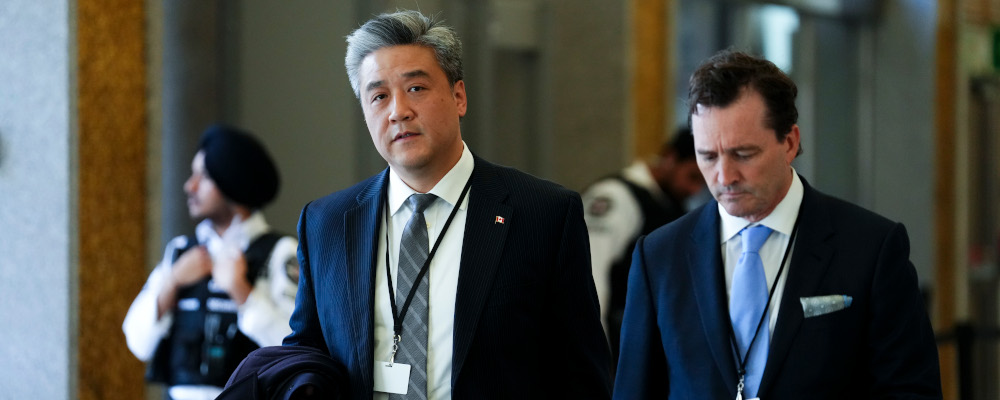
Intelligence vs. evidence
Then came the legalistic master class, where Trudeau returned to the impressive sounding thresholds argument that his ministers and staffers had spent the previous days of testimony setting up. “Intelligence is not evidence,” Trudeau repeated this week. What CSIS reports to the government is what it learns through informants and snippets of communications it may successfully intercept. As such, he explained, intelligence does not meet the standards of evidence for decisive government intervention. This is true at the level of criminal investigations and charges, for example.
For Trudeau, given that he had in hand only suggestive intelligence of wrongdoing not directly tied to Dong, and that the nomination outcome appeared untainted, he did not consider the threshold had been met to overturn a “democratic nomination,” or remove or even discipline the candidate. What he would do was follow up with Dong in a way that would not compromise CSIS’ ongoing efforts.
It is technically legally correct to say that, very often, mere intelligence cannot be the basis for criminal investigation or professional discipline. However, that should not distract from the fact that good intelligence should and must serve as the basis for real political and policy action. Why Trudeau and company subsequently took none remains inexcusably unanswered.
Nominations are the “Wild West” of Canadian politics
If you accept Trudeau and the company’s testimony that CSIS had repeatedly provided them with warnings that nominations and the donations system were prone to foreign capture since just before the 2019 election, why were no steps taken to plug those holes for 2021—or for 2025 and beyond?
During the media reports of CSIS leaks going back over a year, and following the farcical investigation and reporting of “Special Rapporteur” David Johnston, the idea has begun to creep into the public consciousness that the nominations processes of all major federal parties is the “Wild West” of Canadian politics.
Taking place mostly outside the regulatory gaze of Elections Canada and under the winking regulation of political parties themselves, it is well-known that parties have a variety of levers they pull to accommodate their preferred candidates. The timing, location, duration, and eligibility rules of nominations can be manipulated.
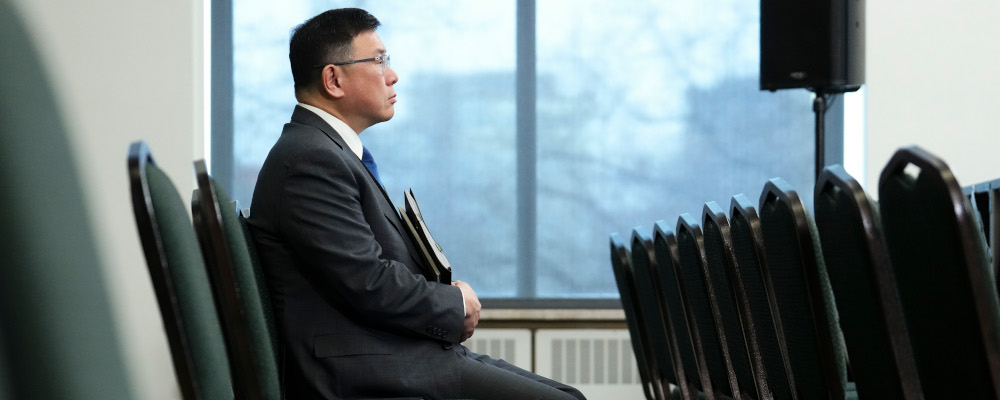
Seeking my own nomination for the Liberals in Scarborough in 2015—and working on the ground at many others on the east of Toronto around that time—I have seen many busloads of confused-looking, homogenous groups being herded by “community leaders” with clear instructions on who to vote for (and occasionally, names written on their forearms in Sharpie). And I have seen friends have piles of supporters’ memberships expire with the turning of the calendar to a new year just as high-profile candidates have entered the contests late.
However, levers go both ways, and foreign governments appear to have jumped on the Liberal Party of Canada’s unique allowance of foreign nationals with student visas to have a say in who will ultimately stand for election in a given riding. Surprisingly, the party does not require aspiring members to be citizens or even permanent residents. They must simply “ordinarily live in Canada.”
Facing mild questioning at the inquiry on why such a practice would be permitted, now-Independent MP Dong offered the argument that inclusion provides foreign nationals with a first taste of the experience of the democratic process. While this argument may hold more sway for permanent residents who are rooted in Canadian society and further removed from the reach of the often hostile governments of their countries of origin, it is more difficult to swallow for mere students, who potentially remain under their nefarious thumbs.
What’s next?
It remains early days for the inquiry. The head of CSIS, David Vigneault, has been recalled for an unplanned, second round of questioning on Friday. At issue will be whether the spy agency forcefully delivered the message to the government that nominations and financing were ripe for capture, or whether their verbal delivery of written speaking notes took a little bit of edge off the message.
There will also be questions of why CSIS toned down the language of some of its written reports after meetings with the PMO: were CSIS’ edits due to political pressure? Or did the government simply provide more information that genuinely moderated the agency’s assessments? On this, it is doubtful Vigneault could say anything other than the latter and keep his job.
Nevertheless, Vigneault’s answers will be vital for plugging the holes exploitable by the People’s Republic of China and other foreign states in time for the 2025 federal election. We await the first report of the PIFI, set to come on the 3rd of May.

